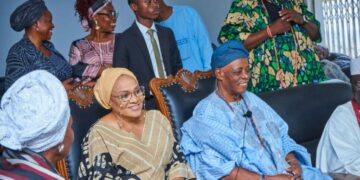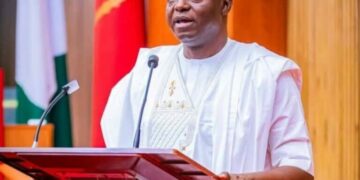A former vice chancellor of the University of Abuja (UNIABUJA) and Kwara State University, Malete (KWASU), Prof. AbdulRasheed Na’Allah, has lamented that the incessant disputes between the federal government and the Academic Staff Union of Universities (ASUU) have crippled higher education in Nigeria.
He, therefore, urged both parties to put Nigeria’s interests first in their negotiations.
Na’Allah, who is currently the pro-chancellor and chairman of the Governing Council of the newly licensed AbdulRasaq Abubakar Toyin University (AATU, Ganmo in Ifelodun local government area of Kwara State, spoke with LEADERSHIP in Ilorin.
He said that years of mistrust between ASUU and government had weakened the universities and reduced them to “certificate-issuing centres” instead of engines of national development.
“The crisis in Nigerian universities is at the core of our national crisis. The government has become less trustworthy, and unions are negotiating only for their members. Both sides no longer put Nigeria first,” Na’Allah said.
He faulted the federal government for repeatedly signing agreements it cannot honour and blamed ASUU for shielding unproductive members.
“In Nigeria, you will find professors who don’t teach, don’t attend classes, don’t bring in research grants, yet they want to be paid. Negotiations should be based on productivity. Professors who bring in grants, develop products, and work with industries should earn more.
Those who don’t contribute should leave the system,” he said.
Na’Allah said the government must also demand accountability in exchange for improved funding, adding that: “If ASUU is asking for better pay, government too should set conditions: quality teaching, industrial linkages, community development, semester-by-semester assessment of lecturers. That’s how universities grow.”
The university administrator said he doesn’t see an end to the crisis unless sincerity and patriotism guide both sides, adding that, “The only solution is to love this nation. It’s not about ASUU, it’s not about government. It’s about Nigeria and whether we want our universities to compete globally.”
He lamented the decline of Nigeria’s first-generation institutions, arguing that a functional university system could have anticipated and addressed national crises such as insecurity.
“Boko Haram shouldn’t have even shown its face if our universities were effective. Research and surveys should have alerted the nation. But universities today are just about convocations and numbers, not solutions.










